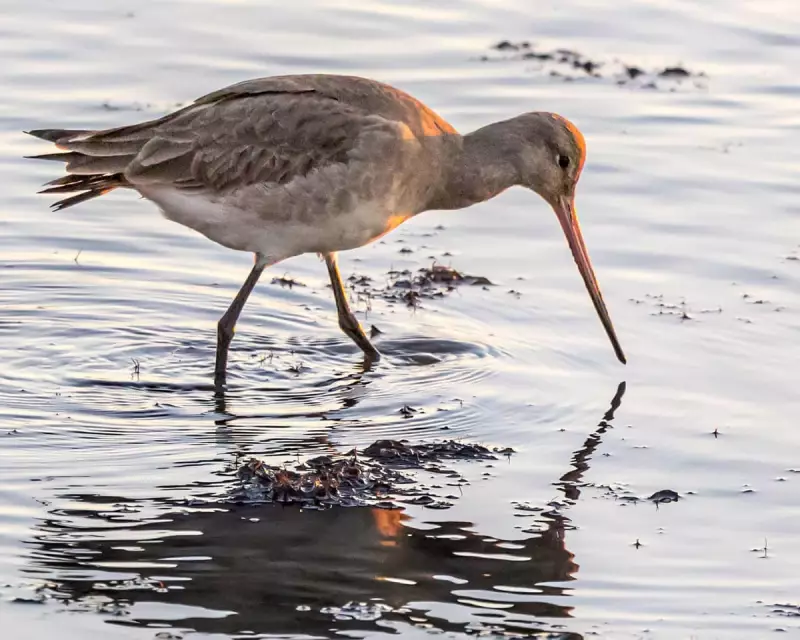
The wooden hide creaks gently in the Norfolk breeze, a solitary shelter overlooking the vast expanse of marshland where water and earth merge into one. Inside, time moves differently. The impatient ticking of modern life gives way to nature's slower rhythm, where every moment holds the promise of revelation.
The Art of Waiting
Birdwatching is less about seeking and more about receiving. You don't find the birds; you make yourself available for when they choose to appear. The hide becomes a meditation chamber, where the sounds of distant traffic fade and are replaced by the whisper of reeds and the occasional call of a lapwing.
This particular morning held that special tension – the knowledge that black-tailed godwits frequent these marshes, but no guarantee they would grace this observer with their presence. The telescope stood ready, a silent companion in the vigil.
A Sudden Arrival
Then, without warning, the emptiness transformed. First one, then several, then a small flock of black-tailed godwits descended upon the shallow waters. Their long, straight bills probed the mud with purposeful rhythm, their cinnamon-breasted plumage glowing in the morning light.
These weren't just birds going about their business; they were living poetry in motion. Each step, each probe into the nutrient-rich mud, spoke of ancient patterns and migratory mysteries. These individuals had likely flown thousands of miles from Icelandic breeding grounds to winter in this very marsh.
More Than Mere Observation
Through the telescope's lens, distance collapsed. The subtle details emerged: the delicate barring on their flanks, the precise way they extracted invertebrates from the mud, their social interactions within the flock. One individual stood particularly close, offering an intimate view of its world.
This wasn't merely birdwatching; it was a form of communion. In that silent exchange across species, something profound occurred – a reminder that we share this landscape with remarkable travellers whose lives are woven into the fabric of these wetlands.
The Legacy of Wetland Conservation
The presence of these godwits speaks volumes about the importance of wetland conservation. These habitats, once dismissed as wasteland, are now recognised as crucial lifelines for migratory species. The careful management of these marshes ensures that future generations might also experience the magic of waiting for godwits.
As the birds eventually took flight, their long legs trailing behind them, the marsh felt emptier and yet fuller for having hosted them. The hide, once a place of anticipation, became a space of gratitude.
Some might call it patience, sitting for hours waiting for birds that may never come. But when they do arrive, transforming an ordinary morning into something extraordinary, you understand: the waiting isn't wasted time. It's the necessary prelude to wonder.





